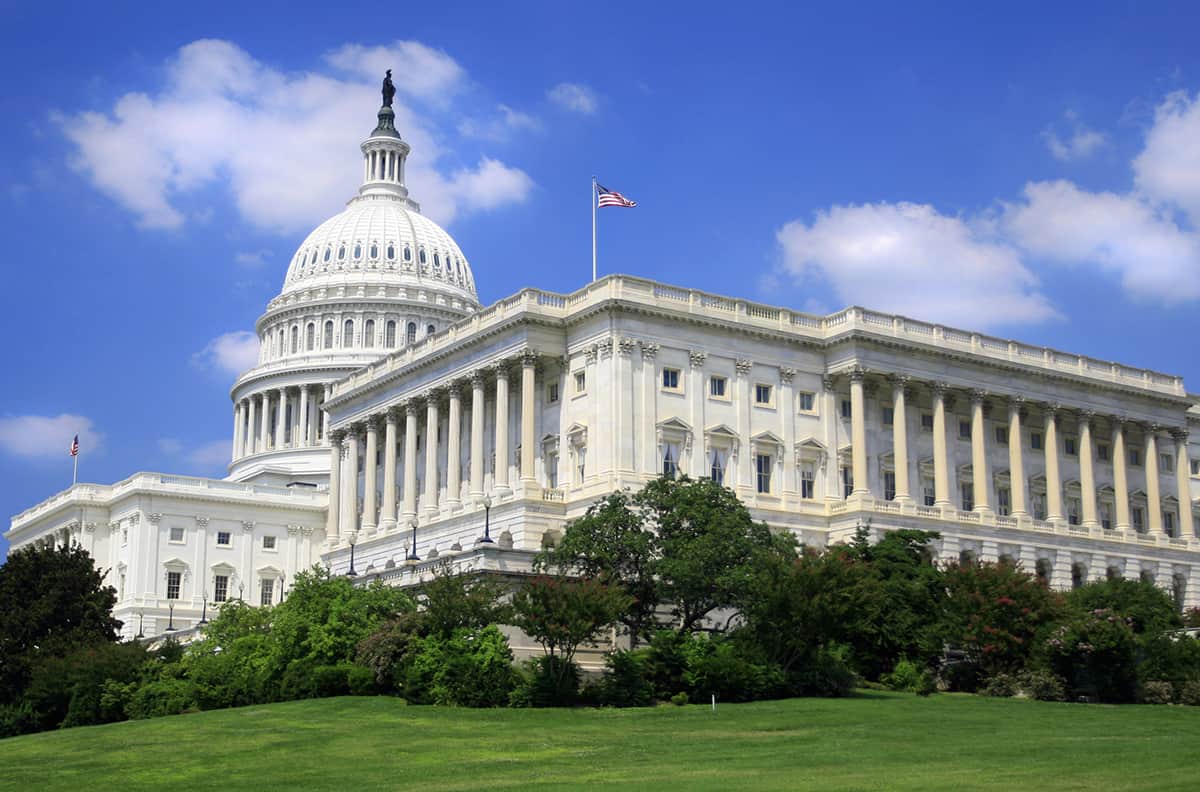-
 Assistant Attorney General, Consumer Litigation UnitArizona Attorney General's Office
Assistant Attorney General, Consumer Litigation UnitArizona Attorney General's Office -

In most consumer fraud cases, restitution is the optimal remedy, serving the two-fold purposes of restoring consumers and deterring businesses from engaging in unlawful acts and practices. State attorneys general may sometimes settle matters without obtaining restitution for a variety of reasons, some of which are addressed below. However, prioritizing restitution begets important recoveries for consumers and can also result in higher civil penalties to states.
Since taking office in 2015, Arizona Attorney General Mark Brnovich has prioritized restitution for consumers in consumer fraud cases. This approach has produced record-breaking recoveries for consumers. During Attorney General Brnovich’s tenure, the Arizona Attorney General’s Office (AGO) has thus far recovered over $200 million in consumer relief, a significant increase in restitution recovered for Arizona consumers over prior administrations.
This focus on restitution has not decreased civil penalties or other recoveries to the state of Arizona. In fact, these recoveries also have increased dramatically during Attorney General Brnovich’s tenure. These results demonstrate that consumer fraud recoveries are not a zero-sum game and that a focus on restitution not only benefits consumers, but also may lead to better recoveries for states than could be obtained through a penalties-driven approach.
Restitution Is the Superior Remedy
In the prosecution of consumer fraud cases, most states’ Unfair or Deceptive Acts or Practices (UDAP) laws empower an attorney general to seek the following remedies: injunctive relief, restitution, disgorgement, civil penalties, and attorneys’ fees.
All of these remedies are important, and should be used in combination to address each individual case, however, restitution should be prioritized. Consumer fraud first and foremost injures the consumer. Restitution puts the consumer front and center, acknowledges the consumers’ loss, and strives to provide the consumer with as much recompense as possible. No other remedy focuses so uniquely on consumer loss. Only restitution directly responds to specific, individualized harm and seeks to do justice by undoing that harm to the extent possible.1
Restitution also deters businesses from engaging in unlawful practices by forcing businesses to pay back consumers. Of course, disgorgement and civil penalties also have deterrent effects, but neither option helps injured consumers.
Accordingly, restitution is far more effective at deterring unlawful conduct if restitution is sought for all injured consumers, rather than only those who have complained. The number of consumers who file a consumer complaint with an attorney general’s office typically represents a small percentage of injured consumers. Therefore, obtaining restitution only for complaining consumers likely will be inadequate to promote deterrence, as companies could chalk up restitution to a few consumers as merely a “cost of doing business.” Seeking restitution for all injured consumers not only promotes a more just result with appropriate deterrence, it also typically leads to larger civil penalties as well, because the number of violations is much higher when the scope expands to all injured consumers.
No doubt, recovering for all or many consumers is no small task. Many statutes and case law make the task a little easier because they stand for the proposition that public consumer fraud actions need not show reliance and that courts can take appropriate action to address the full scope of the harm once a state has established a consumer fraud violation.2 Unfortunately, not all statutes or cases support this proposition,3 but wherever possible, states should try to seek recovery for all injured consumers, regardless of whether those consumers have complained.
Restitution additionally is superior to civil penalties because it may be obtained without the type of heightened showing typically required for a civil penalty award.4 In some cases, statutory language puts the onus on defendants to disprove the need for extensive restitution once the state has established a violation.5
Restitution and injunctive relief are also not mutually exclusive. Both injunctive relief and restitution discourage future misconduct: injunctive relief by means of an enforceable court order, and restitution by making misconduct unprofitable. Only restitution, however, also addresses past harms.6
Attorneys General in Multistate Cases Should Seek Restitution Whenever Possible
Prioritization of restitution is not an abandonment of other available relief. Rather, it is a consumer-centered approach that seeks to put consumers first without leaving other relief on the table.
Arizona’s experience indicates that seeking restitution and civil penalties is not a zero-sum game and restitution should always be considered. Generally, as demands for restitution increase, demands for proportional civil penalties increase as well.
By prioritizing restitution, the AGO has achieved better results for consumers. The 2018 settlement the AGO reached with General Motors LLC (“GM”) is a prime example of our efforts to secure payments for consumers. The prior administration had filed a complaint against GM in 2014 but did not seek restitution. Consistent with his mission to be a voice for Arizona consumers by prioritizing restitution, upon taking office, Attorney General Brnovich immediately amended the state’s lawsuit to include a claim for consumer restitution. The AGO reached a settlement with GM in March 2018 whereby GM agreed to pay over $7.2 million,7 over $5 million of which went to Arizona consumers who purchased the defective vehicles at issue.
Similarly, in 2020 the AGO settled with American Honda Motor Company, Inc. and Honda of America Mfg., Inc. (“Honda”) in a case related to the company’s defective Takata airbag systems. The AGO not only secured a payment to Arizona, it also obtained over $3 million in restitution and incentive gift cards to encourage consumers to repair their dangerously defective vehicles and get dangerous cars off of Arizona’s roads.8
Arizona also was the first state to obtain direct consumer restitution against Volkswagen and its related entities, $10.5 million in total, to resolve false advertising claims.9 This agreement also included an award of $20 million dollars for the state.
Of course, restitution does not make sense in every case, and in some cases the opposing party refuses to agree to restitution in a settlement. The analysis, however, should begin with restitution and multistate groups should seek restitution if at all possible.
Some have argued that consumers also can get restitution by bringing class action cases. Yet, class action lawsuits often leave consumers with little to no recovery for the harm they suffered while class action lawyers receive sometimes exorbitant fee awards.10 In fact, Attorney General Brnovich has been a national leader and frequently challenges the fairness of the allocation of awards in class actions under the Class Action Fairness Act. For example, at the settlement fairness hearing in Chapman, et al. v. Tristar Prods., Inc. (“Chapman”), Attorney General Brnovich argued that the settlement award should be rejected because it was unfair to class members and resulted in a lopsided fee award for class counsel. Class counsel was to receive about $2 million dollars in fees and expenses. At best, a little over $1 million—primarily in the form of coupons—was to go to the consumers who had been harmed by the defective pressure cookers the defendant manufactured. Chapman is one of the numerous examples of class actions resulting in awards that do not represent true restitution. Moreover, although class actions may be more efficient than individual consumers bringing their own cases, the same is not true when a case is brought by an attorney general’s office. Attorney general offices have a vast array of investigative and litigation tools that can lead to quicker and more consumer-focused resolution of cases.
Focusing on Restitution Leads to Better Results in Local Cases as Well
Arizona Attorney General Mark Brnovich’s restitution-focused philosophy also has led to outstanding results in local cases.
In 2017, the AGO reached a settlement agreement with the laboratory testing company Theranos. The agreement resolved the state’s allegations that Theranos’ advertisements misrepresented the method, accuracy, and reliability of its blood testing.11 The AGO ultimately obtained amounts that guaranteed full refunds to all consumers, totaling $4,652,000, along with $200,000 in civil penalties and $25,000 in attorneys’ fees. Theranos collapsed shortly thereafter, but not before all Arizona consumers received their full refunds.
In October 2020, the AGO secured an agreement with the ticket retailer Ticketmaster, returning $71 million in refunds to consumers who purchased tickets to Arizona live events that were cancelled, postponed, or rescheduled due to the 2019 coronavirus pandemic.12 This consumer-focused recovery was particularly important as it was achieved during a time where consumers were financially squeezed and had to manage unforeseen—and sometimes dire—consequences.
In February 2021, the AGO reached an historic settlement with a regulated energy company, the Arizona Public Service Company (“APS”).13 This settlement agreement with the utility company consisted of $24 million in restitution for 225,000 consumers, and $750,000 for the state’s investigation costs and to promote consumer protection.
The following month, the AGO secured $1 million in restitution for up to 26,000 Arizonans and an additional $750,000 in civil penalties against Landmark Home Warranty LLC (“Landmark”).14 The consent agreement resolved the state’s claims concerning alleged misrepresentations Landmark made to expedite services when a consumer suffered a complete loss of air conditioning in “extreme temperatures.” This recovery for Arizona consumers recognized that Arizona residents are uniquely situated—living in a state where summer temperatures can average in the triple digits.
These cases further demonstrate the power of putting consumers front and center by prioritizing restitution, without sacrificing other available recoveries.
Conclusion
Prioritizing restitution does not leave money on the table. Instead, it enhances recoveries and puts the focus on the consumers attorneys general are called to protect by ensuring their stories and experiences of loss are not pushed aside. Those stories provided the impetus for consumer protection laws. State attorneys general should prioritize restitution in both their local cases and in multistate cases to make consumers as whole as possible and to deter bad conduct at the same time. As Attorney General Brnovich’s Office has shown, doing so concedes no other relief and results in meaningful recovery for consumers.
Other articles in this edition include:
- Consumer Chief of the Month
- Attorney General Consumer Protection News
- Federal Consumer Protection News and Other Items of Interest

- Fried, Frank, Harris, Shriver & Jacobson, FTC Affirms Use of Disgorgement and Restriction in Competition Cases, Fried Frank Antitrust and Competition Law Alert, September 8, 2003, at 1, https://www.friedfrank.com/siteFiles/ffFiles/alert_030908.pdf (explaining that although disgorgement and restitution are both equitable monetary remedies, the former focuses on the wrongdoer while the latter focuses on the victim: “Disgorgement asks how much did the wrongdoer gain as a result of his illegal conduct, while restitution asks how much were the victims harmed by the conduct”). [↩]
- See, e.g., Arizona Revised Statutes (“A.R.S.”) § 44-1522(A) (deceptive and unfair acts and practices are unlawful “whether or not any person has in fact been misled, deceived or damaged thereby”); § 44-1528(A)(2) (allowing the court to restore to consumers “any monies or property . . . which may have been acquired” by an unlawful practice) (emphasis added); FTC v. Figgie Int’l, 994 F.2d 595, 605 (9th Cir. 1993) (“It is well established . . . that proof of individual reliance by each purchasing customer is not needed.”); State v. Minnesota Sch. of Bus., Inc., 935 N.W.2d 124, 137 (Minn. 2019) (concluding that proof of individual reliance is not required to justify and award of restitution by reiterating its prior holding that “direct proof of reliance is not required to establish a causal nexus . . .” and finding that the attorney general had presented sufficient evidence to establish a causal nexus between the violation and the harm); State ex rel. Webster v. Areaco Inv. Co., 756 S.W.2d 633, 637 (Mo. App. 1988) (finding that restitution for unfair practice under Missouri’s Merchandising Practices Act does not require showing of customer’s reliance on specific misrepresentation); B&S Mktg. Enters., LLC v. Consumer Prot. Div., 835 A.2d 215, 238 (Md. App. 2003) (concluding that Maryland’s Consumer Protection Division did not have to show customer reliance to order restitution, only that defendants had made unlicensed usurious loans); Thomas v. State, 226 S.W.3d 697, 707 (Tex. App. 2007) (finding that under Texas’ Deceptive Trade Practices Act, the trial court is authorized “to order the restoration of money or property acquired by unlawful means, without any requirement that the trial court specify ‘identifiable persons’ or the amount of money to be paid to each customer”). [↩]
- Some states have concluded that individual reliance must be proven in certain contexts, even in public consumer fraud actions. See, e.g., Consumer Prot. Div. v. Outdoor World Corp., 603 A.2d 1376, 1384 (Md. App. 1992) (“[W]hile advance proof of actual reliance is not necessary to justify a general restitution provision, actual restitution may not be ordered in the absence of some evidence that the individual purchaser was deceived by and relied upon the offending communication.”); Luskin’s, Inc. v. Consumer Prot. Div., 726 A.2d 702, 727 (Md. App. 1999) (stating that “[t]here is a reliance element in restitution” but appearing to conclude that in some cases there is “inherent” reliance while other cases may require “determining the extent of unjust enrichment derived”); Consumer Prot. Div. v. Morgan, 874 A.2d 919, 941–43 (Md. App. 2005) (holding that Maryland’ Consumer Protection Division “can issue a general order of restitution without proving an individual consumer’s reliance, but may not award restitution to the individual consumer without a showing of individual reliance”); State v. Weinschenk, 868 A.2d 200, 209 (Me. 2005) (allowing the state to collect restitution on behalf “direct purchasers” but not “indirect purchasers”, requiring proof of actual reliance for the latter group without citing to authority in support of its construction of Maine’s Unfair Trade Practices Act). [↩]
- See, e.g., A.R.S. § 44-1531(A) (requiring a finding of a willful violation of the Arizona Consumer Fraud Act for an award of civil penalties). [↩]
- Compare A.R.S. § 44-1528(A)(2) (allowing the court to award restitution for any money that “may have been acquired” through unlawful practices) with A.R.S. § 44-1528(A)(3) (allowing the court to award disgorgement only of money that was “obtained” through unlawful practices). [↩]
- The Idaho Supreme Court captured this point with the following analysis:
Businesses faced only with the possibility of a prospective injunctive order would have little incentive to avoid commercial practices of dubious legality. Only a substantial likelihood that defendants who have engaged in unfair or deceptive trade practices will be subject to restitutionary orders will deter many with a mind to engage in sharp practices.
State ex rel. Kidwell v. Master Distribs., Inc., 615 P.2d 116, 124–25 (Idaho 1980). [↩]
- AG Brnovich Obtains $6.28 Million for Arizonans Who Purchased Recalled GM Vehicles, Office of the Arizona Attorney General (Mar. 7, 2018), https://www.azag.gov/press-release/ag-brnovich-obtains-628-million-arizonans-who-purchased-recalled-gm-vehicles. [↩]
- $5M Airbag Settlement with Honda Provides Recall Incentives & Restitution for Consumers, Office of the Arizona Attorney General (Oct. 21, 2020), https://www.azag.gov/press-release/ag-brnovich-announces-5-million-settlement-honda-replace-defective-takata-airbags. [↩]
- $10.5 Million for Arizona Consumers $20 Million to Help Fund K-12 Education, Office of the Arizona Attorney General (May 2, 2018), https://www.azag.gov/press-release/ag-brnovich-secures-40-million-volkswagen-consumer-fraud-settlement. [↩]
- See, e.g., Daniel Fisher, Study Shows Consumer Class-Action Lawyers Earn Millions, Clients Little, Forbes (Dec. 11, 2013), https://www.forbes.com/sites/danielfisher/2013/12/11/with-consumer-class-actions-lawyers-are-mostly-paid-to-do-nothing. [↩]
- AG Brnovich Obtains $4.65 Million for Arizonans Who Purchased Theranos Blood Tests, Office of the Arizona Attorney General (Apr. 18, 2017), https://www.azag.gov/press-releases/ag-brnovich-obtains-465-million-arizonans-who-purchased-theranos-blood-tests. [↩]
- AG Brnovich Secures $71M in Ticketmaster Consumer Refunds for Events Impacted by COVID-19, Office of the Arizona Attorney General (Oct. 27, 2020), https://www.azag.gov/press-release/ag-brnovich-secures-71-million-ticket-refunds-arizona-events-impacted-covid-19. [↩]
- Attorney General Brnovich Secures Nearly $25 Million in Consent Agreement with APS, Office of the Arizona Attorney General (Feb. 22, 2021), https://www.azag.gov/press-release/attorney-general-brnovich-secures-nearly-25-million-consent-agreement-aps. [↩]
- AG Brnovich Announces $1.75 Million Settlement with Landmark Home Warranty, Office of the Arizona Attorney General (Mar. 4, 2021), https://www.azag.gov/press-release/ag-brnovich-announces-175-million-settlement-landmark-home-warranty. [↩]





